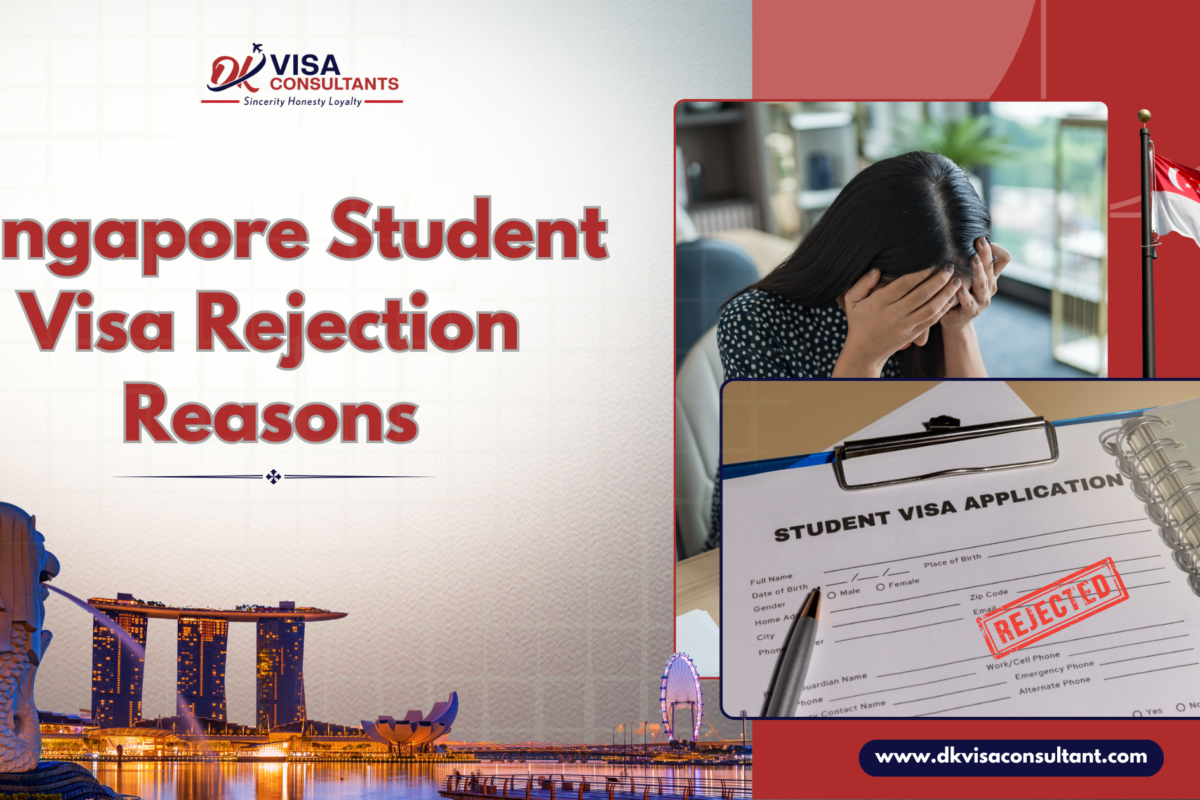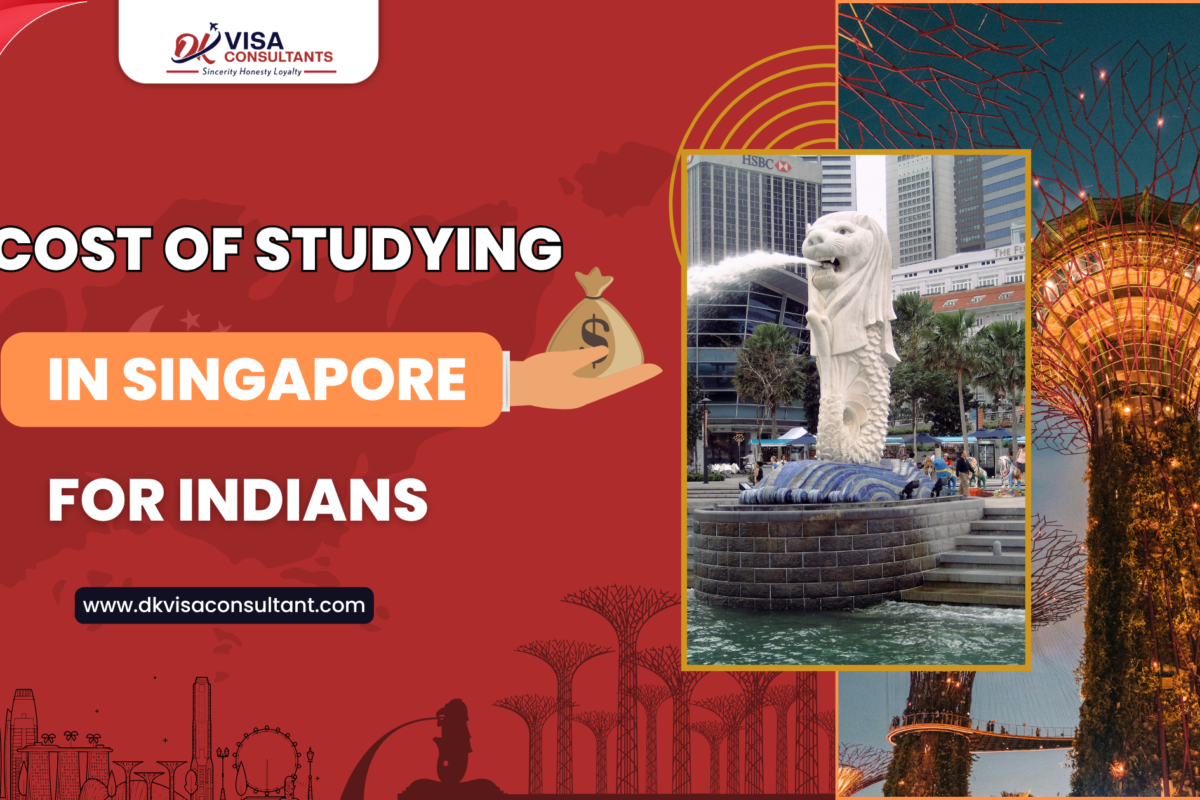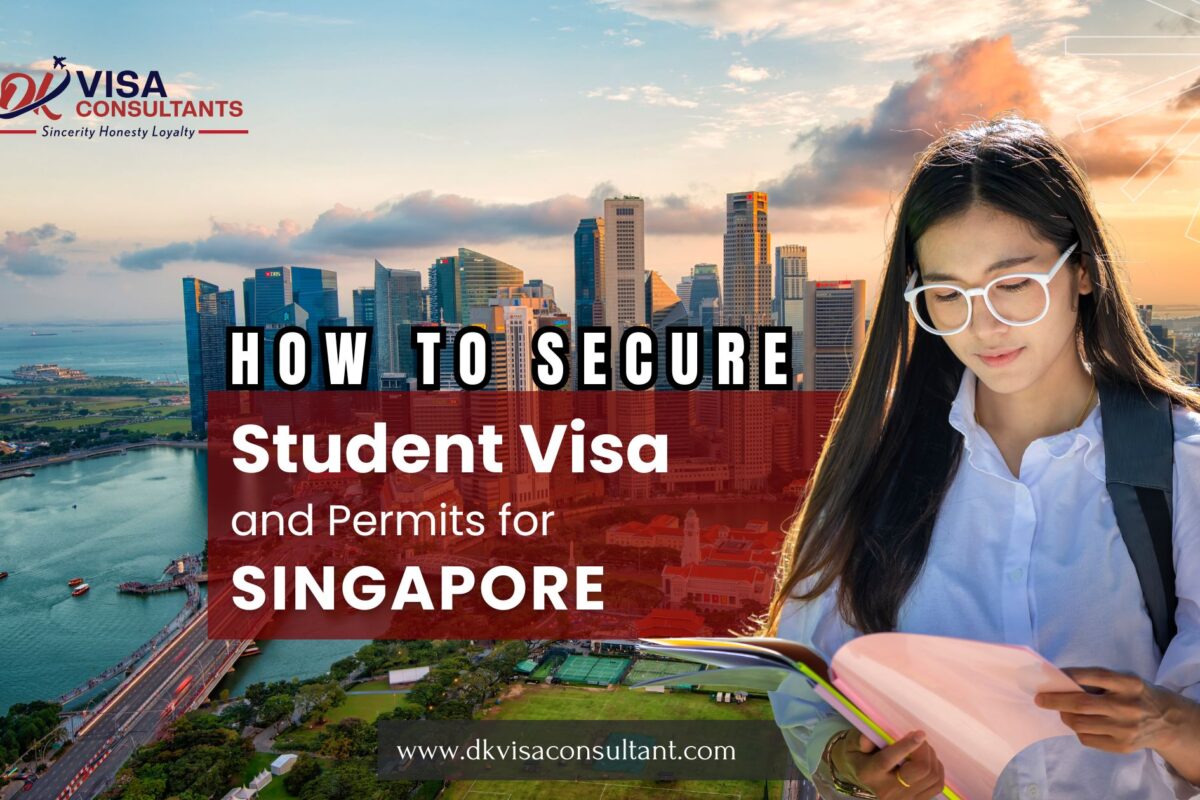A growing number of Indian aspirants select Singapore for higher education due to its world-class institutions, strategic location, and vibrant campus life. Yet, even in a system with relatively high visa-approval rates, Singapore student visa rejection reasons must be understood and mitigated. Knowing the typical pitfalls and how immigration authorities assess applications can make all the difference between acceptance and denial. This guide explores those common reasons in depth, and shows how such errors can be prevented.
Reasons for Singapore Student Visa Rejection
Below are the reasons:
1. Missing or Incorrect Documents
One of the predominant causes of visa refusal lies in documentation lapses. Applications without full, accurate, and properly authenticated supporting papers tend to trigger red flags. Essential documents typically include:
- Statement of Purpose (SOP)
- Letters of Recommendation (LOR)
- Academic transcripts and certificates (with translations if in regional languages)
- Proof of admission from the university
- Financial statements
- Passport, identity proofs
- Medical / health certificates (if required)
If any document is missing, contains conflicting information, or lacks required authentication, visa officers may view the application as incomplete or unreliable.
It is crucial that all documents are up to date, correctly formatted, and consistent across submissions.
2. Absence or Incomplete Details of a Local Sponsor
For certain institutions or under specific policies, inclusion of a local sponsor (a Singapore citizen or permanent resident) is required. If a sponsor’s details are missing or inadequately documented, the visa application may rejected on the grounds that local backing or oversight has not demonstrated.
In such cases, even if the study program does not mandate sponsorship, omitting sponsor information when expected can undermine confidence in the applicant’s local arrangements.
3. Low Scores in English Proficiency Tests
Singapore’s academic and administrative systems operate largely in English. To instil confidence that a student can cope with coursework and integrate into academic life, authorities often require proof of proficiency, such as IELTS, TOEFL, or equivalent. Insufficient scores may viewed as an inability to manage the academic rigour or local assimilation.
If the admission letter itself requires a minimum English score, then failing to meet that standard may be used as justification for rejection.
4. Insufficient Financial Proof
A frequent reason for refusal is the inability to convincingly demonstrate ability to support living costs, tuition, and other expenses for the duration of the stay. If bank statements are weak, funds poorly documented, or the source of funds unclear, visa authorities may doubt the applicant’s financial preparedness.
Proper documentation might include:
- Bank statements over several months
- Fixed deposits or investments
- Sponsorship letters (if applicable)
- Affidavit of support
- Proof of income of guarantor
Clarity, sufficiency, and consistency in financial documentation are key to persuading visa officers of financial stability.
5. Expired, Damaged, or Invalid Passport
A valid passport is the foundational identity document. If the passport is expired, damaged, or near expiry, or if its pages are torn, authorities may reject the visa outright. Similarly, if the passport has insufficient validity to cover the entire study period plus buffer time, risk is assumed.
Also, prior visa stamps or previous Singapore visas (if any) should not be defaced or invalid. Any anomalies in passport condition can raise suspicion about the applicant’s identity record.
6. Criminal Record or Legal Issues
Applicants with criminal convictions, ongoing legal matters, or entries in police records are at a significant disadvantage. Visa officers often view criminal history as a risk factor. Even minor offenses, if declared or discovered, can impact visa decisions.
Transparency is critical: withholding or misrepresenting legal records may further harm credibility. In some cases, additional clearances or police certificates may remedy concerns, but such issues require early attention.
7. Perceived Purpose Misalignment or Doubtful Intent
Visa officers must convinced that the applicant’s purpose aligns strictly with academic goals. If an application gives any impression of intention beyond study—such as migration, employment, or indefinite stay—the application might scrutinised more heavily or rejected.
Signals that may trigger this include:
- Inconsistent academic or career trajectories
- Unclear reason for choosing Singapore and specific course
- Gaps in study or employment not explained
- Overly ambitious financial projections
Clear, consistent reasoning in the SOP and supporting documents helps enforce the narrative that the purpose of travel is solely academic.
8. Reapplication After Rejection (Without Corrections)
One further issue arises when rejected applicants reapply without adequately addressing the reasons for the earlier denial. Recycling a previously declined application—with the same documents and errors—often leads to rejection again.
Each reapplication should be treated as a new opportunity: meticulous correction of past errors, fresh documentation, clear explanations for changes, and stronger supporting evidence improve the odds of success.
Recommendations & Preventive Measures
To minimise the risk of Singapore student visa rejection, the following best practices are recommended:
- Double-check documentation: Use official checklists, ensure translations, and ensure consistency across forms.
- Sponsor details: If a local sponsor is required or expected, include full, verifiable credentials.
- Meet English requirements: Obtain valid test scores in line with university or visa expectations.
- Show financial sufficiency: Present clean, robust, and transparent proof of funds.
- Valid passport: Use a passport with validity that exceeds expected stay, and ensure no significant damage.
- Disclose legal history: If any past legal issues exist, provide truthful declarations and relevant clearances.
- Craft a coherent SOP: Illustrate clear academic goals, link them to prior experience, and show legitimacy of intent.
- Review earlier rejection reasons: When reapplying, directly address previous concerns with improved evidence and explanations.
DK Visa Consultant emphasises maintaining strict accuracy, timely updates, and professional review at every stage to ensure the strongest possible application.
Conclusion
A Singapore student visa rejection, while disappointing, often stems from avoidable missteps in documentation, intent clarity, financial proof, or legal compliance. A clear understanding of Singapore student visa rejection reasons and proactive measures can significantly reduce risk. With methodical preparation, alignment of all supporting materials, and strategic reapplication, a successful outcome is well within reach. DK Visa Consultant remains committed to guiding students through every nuance of visa processes and helping convert aspirations into reality.
FAQ
Q1. Is visa rejection common for Singapore student passes?
Ans:Singapore’s student visa approval rates are generally high (reports suggest around 9 in 10 succeed). However, rejection does occur in cases of documentation errors or perceived intent issues.
Q2. Can visa be re-applied after a rejection?
Ans:Yes. Reapplication is allowed. But it is essential to address and rectify prior rejection reasons—present corrected documents and strengthened evidence.
Q3. Does a low English test score alone lead to visa denial?
Ans:If English proficiency is below required thresholds, it may be a factor. In many cases, universities require minimal scores for admission, which helps mitigate this risk.
Q4. How much financial proof is considered sufficient?
Ans:The required amount depends on tuition, living expenses, and university estimates. Documents should convincingly cover the entire duration of study with buffer margins.
Q5. What happens if sponsor details were not required but still included?
Ans:If not required officially, inclusion of sponsor details is unlikely to harm. But if authorities expect only certain formats, unexpected entries may raise questions—clarity and consistency matter.





